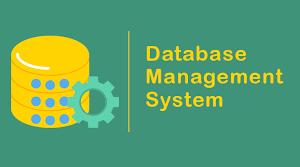Description
Course Description:
The Certified Ethical Hacker (CEH) course is a comprehensive training program designed to equip IT professionals with the latest tools and techniques used by malicious hackers—but in a lawful and legitimate manner to assess the security posture of an organization. This course teaches you to think like a hacker and apply the same knowledge to defend against threats and secure critical data.
Key Features of Course Divine:
- Collaboration with E‑Cell IIT Tirupati
- 1:1 Online Mentorship Platform
- Credit-Based Certification
- Live Classes Led by Industry Experts
- Live, Real-World Projects
- 100% Placement Support
- Potential Interview Training
- Resume-Building Activities
Career Opportunities After Certified Ethical Hacker:
- Ethical Hacker
- Security Analyst
- Cybersecurity Consultant
- Vulnerability Analyst
- Network Security Engineer
- Threat Intelligence Analyst
- Government or Defense
- Compliance Analyst
Essential Skills you will Develop Certified Ethical Hacker:
- Footprinting and Reconnaissance
- Scanning Networks
- Enumeration
- System Hacking
- Malware Threats
Tools Covered:
- Nmap – Network mapping and port scanning
- Maltego – Open-source intelligence (OSINT) and forensics
- Recon-ng – Web reconnaissance framework
Syllabus:
Module 1: Introduction to Ethical Hacking Overview of Information Security Cyber Kill Chain Methodology Hacking Concepts and Types of Hackers Foot printing and Reconnaissance Concepts Legal Framework and Cyber Laws.
Module 2: Foot printing and Reconnaissance Passive vs. Active Reconnaissance
Tools and Techniques for Data Gathering Who is, Google Hacking, DNS Interrogation Email Harvesting and Social Engineering Countermeasures and Defensive Techniques.
Module 3: Scanning Networks Network Scanning Concepts Types of Scanning (Port, Network, Vulnerability) Tools: map, Angry IP Scanner, Net cat Banner Grabbing and OS Fingerprinting Evading Firewalls and IDS/IPS
Module 4: Enumeration Enumeration Techniques and Concepts NetBIOS, SNMP, LDAP Enumeration SMB, SMTP, and DNS Enumeration Enumeration Tools and Scripts Mitigation Techniques.
Module 5: Vulnerability Analysis Vulnerability Assessment vs. Penetration Testing
Types of Vulnerabilities (Web, OS, Network) Vulnerability Scanning Tools: Nessus, OpenVAS, Nikto Report Analysis and Risk Assessment.
Module 6: System Hacking Password Cracking Techniques Privilege Escalation Keylogging and Spyware Maintaining Access (Backdoors, Trojans, Rootkits) Clearing Tracks (Log Tampering, Covering Evidence).
Module 7: Malware Threats Types of Malware (Virus, Worms, Trojans, Ransomware) Malware Analysis Techniques Creating and Deploying Malware
Detection and Prevention Anti-Malware Tools and Defense.
Module 8: Sniffing, Social Engineering, and Denial of Service Sniffing Techniques and Tools (Wireshark, TCP Dump) MAC Spoofing, ARP Poisoning Social Engineering Methods and Case Studies Do and Attacks and Tools Botnets and Countermeasures.
Module 9: Web Application and Wireless Hacking Web Application Vulnerabilities: XSS, CSRF, File Inclusion OWASP Top 10 Wireless Encryption Cracking (WEP, WPA, WPA2) Rogue Access Points and Evil Twin Attacks Mobile and IoT Exploits.
Module 10: Cryptography and Cloud Security Cryptography Basics and Algorithms
Hashing, Encryption, and Digital Signatures Steganography and Cryptanalysis
Cloud Computing Threats and Security Pen Testing Cloud and Virtual Environments.
Industry Projects:
- Network Hacking Simulation
- Social Engineering Attack Simulation
- Penetration Testing on a Corporate Network
- Web Application Security Testing
- Malware Analysis and Reverse Engineering
Who is this program for?
- Cybersecurity Enthusiasts
- IT Professionals
- Penetration Testers
- Law Enforcement and Military
How To Apply:
Mobile: 9100348679
Email: coursedivine@gmail.com









Reviews
There are no reviews yet.